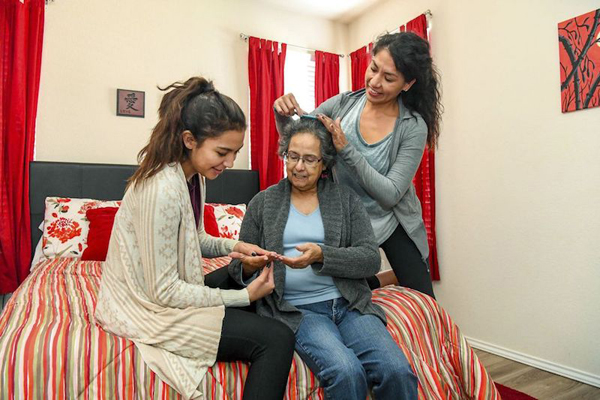- La Feria Community Holds Succesful Business Mixer Event
- Little Nashville to Take Place in Downtown Mercedes
- Lions Basketball Captures District Gold
- La Feria ISD Students Compete in Regional Chess Tournament
- Lions End First Half of 32-4A on a High Note
- La Feria ISD Held Another Successful Parent Conference
- Strong Appearance for Lions at Hidalgo Power Meet
- LFECHS Students Get to Meet Local Actress
- Students Participate in Marine Biology Camp
- Two LFECHS Students Qualify for All-State Band
COVID-19: Texas families urged to discuss end-of-life planning over holidays
- Updated: December 31, 2020

By ROZ BROWN
Texas News Service
AUSTIN, Texas — COVID-19 has forced many families to make end-of-life decisions without clear direction from their loved ones, which is why Texans are being encouraged to set aside time for such discussions over the holidays.
Maria Otero, national Latino outreach manager for Compassion & Choices, said it’s an especially important conversation for Hispanic and Latino families, because of their higher risk of dying from the virus.
Compassion & Choices has created a free, online and bilingual end-of-life toolkit that Otero said can help families communicate about what often is a difficult subject.
“This toolkit walks you through each of the steps of planning the process from understanding your options to reducing your risk using telehealth,” Otero explained.
Otero added Spanish-speaking communities often prefer to receive health-care information in their own language, and the toolkit has been designed to accommodate that.
In addition to language barriers, she said cultural traditions in some Latino families can inhibit end-of-life planning.
Cecilia Vasquez Vigil had not prepared end-of-life instructions when she was hospitalized for 34 days with COVID-19 in March.
She said her extended family faced more tough conversations when their 88-year-old mother contracted the virus and later died.
Since then, Vigil has been using the toolkit’s step-by-step planning instructions. She said the conversations have not been easy for her children, but have helped reduce anxiety in such an uncertain time.
“I’ve definitely learned that, having those tough conversations with them, that the toolkit has been very rewarding in that I know my kids are going to be OK,” Vigil commented. “I know my husband’s going to know what to do.”
Compassion & Choices is urging Texans to fill out and share their advance-care directive with their family and health-care providers.
The document spells out the kind of care you want or don’t want, and designates a proxy to make medical decisions for you in case you can’t speak for yourself.


